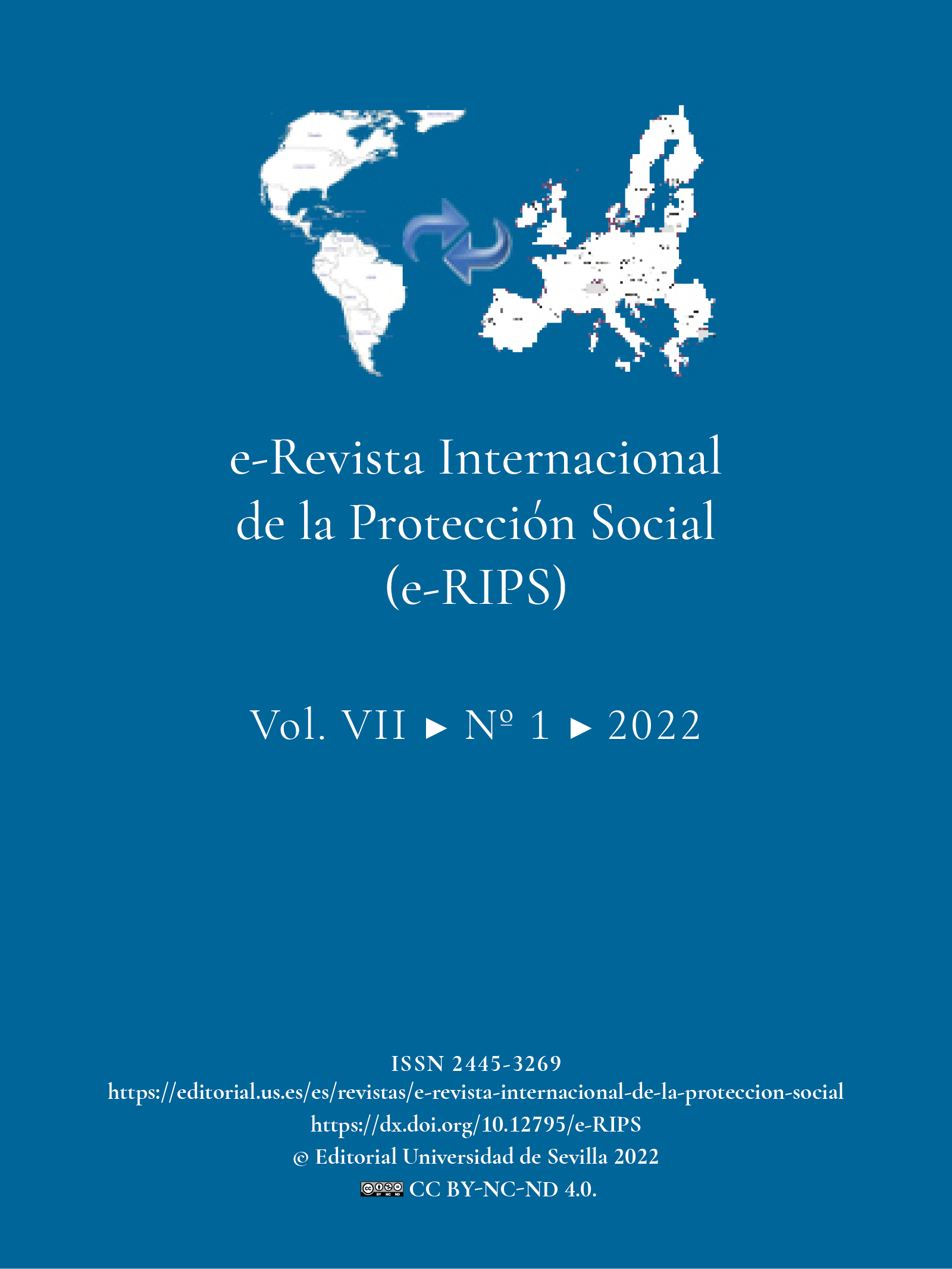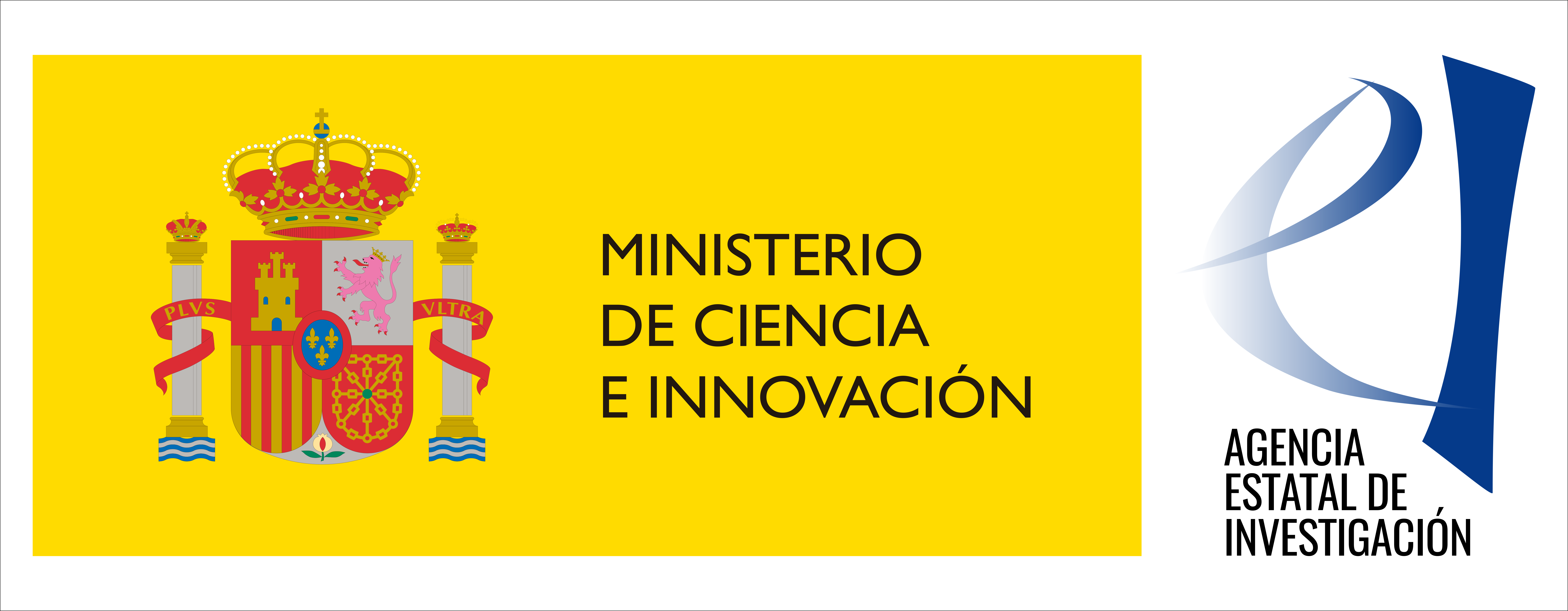El trabajo en plataformas digitales de reparto desde la perspectiva del Tribunal Superior del Trabajo: el caso brasileño
DOI:
https://doi.org/10.12795/e-RIPS.2022.i01.10Palabras clave:
Derecho Laboral, Trabajo en plataformas digitales, Tribunales laborales, Brasil, EspañaResumen
Se trata de un estudio que busca investigar la relación existente entre las decisiones judiciales en Brasil y España respecto de la delimitación de la naturaleza jurídica del trabajo en plataformas digitales. En los Juzgados de España y Brasil se ha cuestionado la validez de esta autonomía, ya que estos trabajadores solicitan el reconocimiento de su naturaleza laboral. En el ámbito legislativo brasileño, no existe ninguna norma que reconozca el estatus de trabajadores por cuenta ajena a estas personas. En España, en cambio, se ha aprobado recientemente la ley Rider, pero el propio país todavía se está adaptando a la presunción de laboralidad incorporada en la misma. Lo que se propone en este texto, por lo tanto, a través del análisis de las decisiones brasileñas y españolas, es investigar si los pronunciamientos de los Tribunales han dirigido o no la caracterización de la naturaleza jurídica del trabajo realizado por los repartidores y las empresas de reparto en estos países.
Descargas
Citas
Aplicada, I. d.: Mercado de trabalho: conjuntura e análise: Maio a novembro/ 2020, Ministério do Trabalho. Brasília, 2021.
Baylos Grau, A.: “Una breve nota sobre la ley Española de la laboralidad de los riders”, Labour & Law Issues, vol. 7, núm. 1, 2021. DOI: https://doi.org/10.6092/issn.2421-2695/13116.
Delgado, M. G.: Curso de Direito do Trabalho LTr, São Paulo, 2021.
Gauthier, G.: “Una relectura de la subordinación: La incipiente jurisprudencia sobre la naturaleza del vínculo entre UBER y los conductores”, en Todolí Signes, A. y Hernández Bejarano M. (dir.): Trabajo en plataformas digitales, innovación, derecho y mercado, Thomson Reuters-Aranzadi, Cizur Menor, 2018, pp. 271-294.
Jacob, R. B.: O Trabalho via Plataformas Digitais: Aportes teóricos e os fundamentos dos casos dos entregadores por aplicativo na Espanha, Lujur, São Paulo, 2021.
Oliveira, C. S.: “Dependência Econômica e Plataformas Digitais de Trabalho: Desvendando as estruturas da precificação e assalariamento por meios digitais”, Revista do Programa de Pós-Graduação em Direito da Universidade Federal da Bahia, vol. 31, núm. 1, 2021, pp. 33-76. DOI: https://doi.org/10.9771/rppgd.v31i1.45523.
Sangeet Paul, C.: The architecture of digital labour platforms: policy recommendations on platform design for worker well-being, International Labour Office, Geneva, 2018.
Teixeira, S. T.: “O novo modelo de Relação de emprego: Repercussões das inovações tecnológicas sobre os elementos estruturais do vínculo de emprego”, Revista LTR, vol. 60, núm. 10, 1996.
Todolí Signes, A.: “O mercado de trabalho no século XXI: on-demandeconomy, crowdsourcing e outras formas de descentralização produtiva que atomizam o mercado de trabalho”, en Leme, A. C.; Rodrigues, B. A.; Chaves Junior, J. E. (coords.): Tecnologias disruptivas e a exploração do trabalho humano: a intermediação de mão de obra a partir das plataformas eletrônicas e seus efeitos jurídicos e sociais, LTr, São Paulo, 2017, pp. 28-43.
Todolí Signes, A.: “Comentario a la sentencia del Tribunal Supremo español que considera a los Riders empleados laborales”, Labour & law Issues, vol. 6, núm. 2, 2020. DOI: https://doi.org/10.6092/issn.2421-2695/12034.
Todolí Signes, A.: “Cambios normativos en la Digitalización del Trabajo: Comentario a la “Ley Rider” y los derechos de información sobre los algoritmos”, IUSLabor, núm. 2, 2021. DOI: https://doi.org/10.31009/IUSLabor.2021.i02.02.
Todolí Signes, A. y Naji, M. J.: Riesgos laborales específicos del trabajo en plataformas digitales, Osalan - Instituto Vasco de Seguridad y Salud Laborales, Barakaldo (Bizkaia), 2020.
Publicado
Cómo citar
Número
Sección
Licencia
e-Revista Internacional de la Protección Social es una revista de acceso abierto, lo que significa que todo su contenido está disponible gratuitamente para el usuario o su institución. Los usuarios pueden leer, descargar, copiar, distribuir, imprimir, buscar o enlazar con el texto completo de los artículos, o utilizarlos para cualquier otro fin lícito, sin solicitar permiso previo al editor o al autor. Esta definición de acceso abierto se ajusta a la Iniciativa de Acceso Abierto de Budapest (BOAI).
 4.0
4.0
A menos que se indique lo contrario, todo el contenido de la edición electrónica se distribuye bajo una " licencia internacional Creative Commons Atribución-Nocomercial-Compartirigual 4.0 Internacional". Puede consultar la versión informativa y el texto legal de la licencia aquí. Esto debe indicarse expresamente de esta manera cuando sea necesario.
En caso de aceptación del manuscrito, los autores ceden los derechos de la obra para su publicación a eRIPS. Revista Internacional de la Protección Social bajo el contrato de licencia Reconocimiento-NoComercial-CompartirIgual 4.0 Internacional (CC BY-NC-SA 4.0). Los autores conservan los derechos de autor y terceros están autorizados a compartir y adaptar la obra, siempre que cumplan con los términos y condiciones establecidos en la licencia.
- Usted debe dar crédito de manera adecuada , brindar un enlace a la licencia, e indicar si se han realizado cambios . Puede hacerlo en cualquier forma razonable, pero no de forma tal que sugiera que usted o su uso tienen el apoyo de la licenciante.
- Usted no puede hacer uso del material con propósitos comerciales .
- Si remezcla, transforma o crea a partir del material, debe publicar sus contribuciones bajo la misma licencia que el original.
Se puede encontrar más información en https://creativecommons.org/licenses/by-nc-sa/4.0/deed.es
Se permite y recomienda a los autores/as difundir su obra a través de Internet (p. ej.: en archivos telemáticos institucionales o en su página web) antes y durante el proceso de envío, lo cual puede producir intercambios interesantes y aumentar las citas de la obra publicada.











